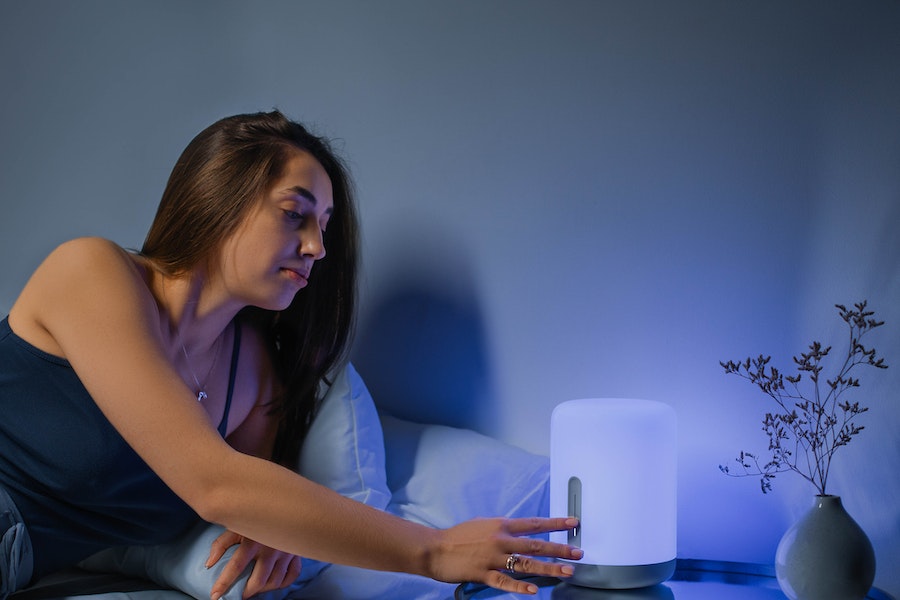This article seeks to provide readers with an overview of insomnia Symptoms, the most common sleep disorder. Insomnia can lead to a number of issues such as fatigue, concentration problems, and irritability. It is important to understand this condition in order to better manage it.
Insomnia typically affects people of all genders and ages but may be more prevalent among women, shift workers, and those who have underlying mental health conditions. Causes for insomnia include stress and anxiety as well as poor sleep hygiene (e.g., poor sleeping habits).
Common symptoms include difficulty falling asleep or staying asleep during the night as well as significant daytime fatigue or exhaustion despite getting enough hours of sleep per night.
With proper treatment, however, people with insomnia can find relief from their symptoms and be able to experience improved quality of life once again!
What is Insomnia

Insomnia is a common sleep disorder that affects people of all ages and backgrounds. While it may seem like a minor problem, the inability to get enough restful sleep can have far-reaching consequences for your mental and physical health. Yet, many people are unaware of the symptoms associated with insomnia, leaving sufferers feeling helpless in their situation.
By understanding more about the signs and symptoms of insomnia, we can break through this silence and provide appropriate help to those in need. People who are experiencing any combination of difficulty falling asleep or staying asleep, waking up too early, or feeling unrested after 7-9 hours of sleep may be suffering from insomnia.
Other common symptoms include restlessness throughout the night, irritability during the day due to fatigue, difficulty concentrating during work or school tasks and other cognitive issues related to lack of good quality sleep.
Causes of Insomnia

Insomnia is a common sleep disorder that affects millions of people around the world. It can have debilitating symptoms such as fatigue, difficulty concentrating, and low energy levels which can all make day-to-day activities more difficult. Fortunately, understanding the causes of insomnia can help those who suffer to get their sleep back on track. One of the most common causes of insomnia is stress and anxiety.
When we are anxious or worried about something it can be hard to relax enough to drift off into a deep sleep. Stressful life events such as job loss or relationship troubles can particularly exacerbate this problem. Regularly taking part in relaxation strategies such as deep breathing exercises or yoga may help reduce stress and improve your ability to fall asleep quickly and easily at night.
Insomnia Symptoms
Insomnia is a common and treatable medical condition. It affects millions of people each year and can cause a wide range of debilitating symptoms. Fortunately, there are many treatment options available to help those affected by insomnia restore their sleep patterns and lead healthier lives. Most people with insomnia experience difficulty falling asleep or staying asleep throughout the night. As a result, they may wake up feeling exhausted and struggle to find energy during the day.

Additional symptoms include waking up frequently during the night, waking up too early in the morning, daytime fatigue, difficulty concentrating, irritability, depressed moods and lack of motivation. If you are experiencing any of these symptoms as well as difficulty sleeping for more than three nights per week, it is important to consult your doctor so they can assess whether you have an underlying condition that could be causing your sleep problems.
Effects of Insomnia
Insomnia affects millions of people around the world, making it difficult for them to get a restful night’s sleep. It can interfere with daily life and lead to fatigue, irritability, and depression. But don’t let insomnia take over your life – there are ways to manage its impact and get back on track. With the right strategies, you can reduce the effects of insomnia and enjoy a better quality of sleep each night.
Practices such as stress-reduction techniques, relaxation methods like yoga or deep breathing exercises, exercise during the day, avoiding caffeine late in the day, and establishing a consistent bedtime routine can all help improve your ability to fall asleep faster and stay asleep longer. Additionally, setting up an environment conducive to sleep by eliminating noise and artificial light will also increase your chances of getting good rest each night.
Treatments for Insomnia
A variety of medications can be prescribed by a doctor to treat insomnia, such as benzodiazepines or melatonin receptor agonists. While these medications may provide temporary relief from insomnia symptoms, they should only be taken when prescribed by a doctor and for the time frame recommended.
Additionally, many people find that medication does not always provide long-term solutions for their struggles with insomnia. There are also many non-medicinal techniques available to help those dealing with insomnia. Cognitive Behavioral Therapy (CBT) has been found to be an effective treatment in addressing the underlying causes of insomnia and can improve sleep habits over time.
Living with insomnia can be difficult, but it doesn’t have to be impossible. There are many treatment options out there that can provide relief and help you get a better night’s sleep. With the right tools and attitude, you can find the best solution for your insomnia and start living a healthier life again. The most important thing is to find what works best for you, whether it’s lifestyle changes or medication.
Educating yourself on insomnia and talking to your doctor about any concerns will help you make an informed decision when it comes to managing this condition. Don’t forget that relaxation techniques such as mindful breathing and yoga can also be beneficial in helping reduce stress levels which in turn may lead to better sleep quality.

